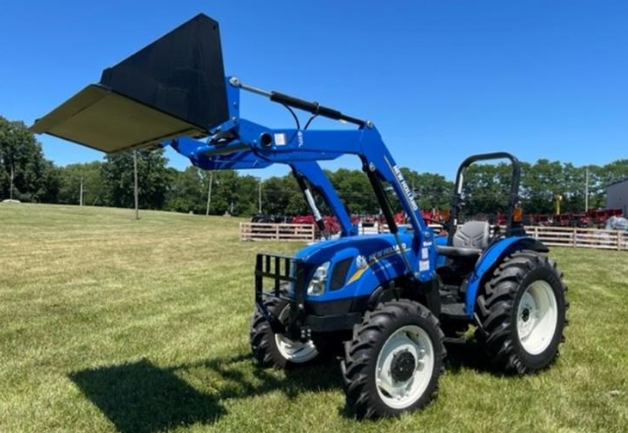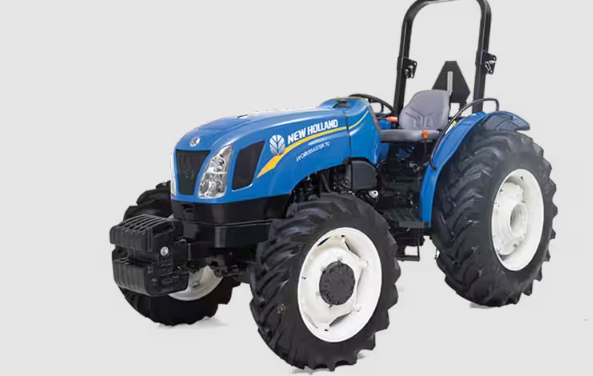The New Holland Workmaster 70 is a powerful machine known for its efficiency and productivity. However, as with any machine, it can experience issues that may require troubleshooting. This guide will explore the world of problem-solving, helping you discover and solve any potential issues with the Workmaster 70. Step-by-step instructions will help you identify and address the most common problems to keep your machine running smoothly and efficiently.
Troubleshooting New Holland Workmaster 70 Problems

The New Holland Workmaster 70 is a powerful machine that can help you tackle a variety of tasks, but it’s essential to be aware of the potential issues it may encounter. In this guide, we’ll explore troubleshooting Workmaster 70 problems in-depth, including step-by-step instructions to help you identify and address the most common issues. We’ll also provide an overview of the tools and techniques you need to keep your machine running smoothly and efficiently. With this guide, you’ll have the knowledge and resources to tackle any problem that may arise.
🚨You may be interested in: New Holland T4.75 Problems
| Problem | Solution |
|---|---|
| The engine won’t start | Check fuel level, fuel filter, and battery |
| Clutch slipping | Check the clutch pressure plate, clutch disc, and flywheel for wear |
| Transmission won’t shift | Check hydraulic pressure, transmission controls, and linkage adjustments |
Not Starting Up
One of the most common problems with the New Holland Workmaster 70 is that it won’t start up. This could be due to a variety of issues, such as a faulty battery or fuel blockage. To diagnose the issue, check the battery and fuel supply, and inspect the wiring to make sure it is secure and connected correctly. If the battery is low, recharge or replace it. If the fuel supply is blocked, use a pressure washer to clear the blockage. If the wiring is loose, tighten the connections using a wrench or screwdriver.
Strange Noises
The New Holland Workmaster 70 can sometimes make strange noises while running. This could be a sign of a more significant problem, such as a worn-out belt or a failing motor. To diagnose the issue, inspect the belts and motors and look for signs of wear and tear. If the belts are worn, replace them. If the motor is failing, contact a mechanic to repair or replace it.
Poor Performance
If the New Holland Workmaster 70 is experiencing poor performance, it could be due to a number of factors. Check the fuel filter to make sure it is clean and not clogged. Inspect the air filter and clean or replace it if necessary. Make sure the spark plug is in good condition and replace it if necessary. Finally, check the engine oil and top it off if it is low. These simple steps can help improve the performance of the Workmaster 70.
🎯Suggested article: New Holland DPF Delete Kit
Key Takeaways for Troubleshooting New Holland Workmaster 70 Problems
- Check fuel level, fuel filter, and battery if the engine won’t start
- Inspect the clutch pressure plate, clutch disc, and flywheel for wear if the clutch is slipping
- Check hydraulic pressure, transmission controls, and linkage adjustments if the transmission won’t shift
- Check the wiring, battery, and fuel supplies if the machine won’t start
- Inspect the belts and motors for signs of wear and tear if strange noises are present
- Check the fuel filter, air filter, spark plug, and engine oil to improve performance
Troubleshooting New Holland Workmaster 70 Problems: A Comprehensive Guide
Troubleshooting the New Holland Workmaster 70 can be daunting, but it can be a breeze with the proper knowledge and attentiveness. By following the above steps, you can identify and address a variety of problems quickly and efficiently. From checking the fuel level to inspecting the wiring, these simple steps will help ensure the Workmaster 70 runs smoothly and efficiently. With some basic knowledge and a bit of patience, you can troubleshoot the Workmaster 70 with ease.
🚨You may be interested in: New Holland Lx665 Problems
